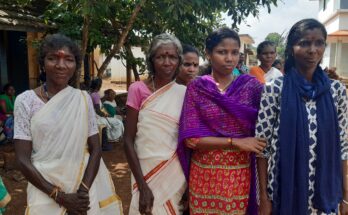On January 4th Serum Institute of India’s Covishield (based on the vaccine developed by Oxford University and AstraZeneca) and Bharat Biotech’s Covaxin were approved for restricted emergency use. Covishield’s efficacy is reported to be 70.4% based on phase-3 trials conducted in the UK and Brazil. As for Covaxin, efficacy data of the ongoing phase-3 trials have not been made public yet.
Drugs Controller General of India (DVGI) VG Somani said, “We will never approve anything if there’s slightest of safety concern. Vaccines are 110% safe. Some side effects like mild fever, pain and allergy are common for every vaccine.”
Both vaccines are to be administered in two doses. The government has now embarked on one of the largest immunization programs, with nearly three crore healthcare and frontline workers set to receive vaccine doses in the first phase, which is expected to be completed in a few months.
The vaccination drive was rolled out on January 16 and is currently one of the fastest as well. The current vaccination drive is intended only for people above the age of 18. As of January 26, A total of 20,23,809 people have been vaccinated. India is also exporting the vaccines and the act has been dubbed as “vaccine diplomacy” and has made the title “Pharmacy of the world” even stronger.
The Centre has also decided the distribution strategy among states based on geographic prioritization, or in areas where “infection prevalence is high”. This means, states like Maharashtra and Kerala, which are reporting the highest daily cases, will likely get more vaccines as compared to other states.
What is the controversy around the vaccines?
It all began when the regulator said the vaccine had been approved for “restricted use in emergency situations in the public interest as an abundant precaution, in clinical trial mode, especially in the context of infection by mutant strains”.
Experts wondered how a vaccine was cleared for emergency use by millions of vulnerable people when its trials were still underway.
Both the manufacturer and drug regulator say Covaxin is “safe and provides a robust immune response”.
But the All India Drug Action Network said it was “baffled to understand the scientific logic” to approve “an incompletely studied vaccine”. It said that there were “intense concerns arising from the absence of the efficacy data”.
Bharat Biotech has defended the approval, saying Indian clinical trial laws allowed “accelerated” authorization for the use of drugs after the second phase of trials for “unmet medical needs of serious and life-threatening diseases in the country”. It has promised to provide efficacy data for the vaccine by February.
Serum Institute (SII), the Indian makers of the vaccine, say Covishield is “highly effective” and backed by phase III trial data from Brazil and the United Kingdom. Clinical trials are a three-phased process to determine whether the vaccine induces good immune responses and whether it causes any unacceptable side-effects.
But patients’ rights group, All India Drug Action Network, says its approval has been rushed because the manufacturer has not completed a “bridging study” of the vaccine on Indians.
The company said it will try to conduct the bridging trial of the vaccine in India in February. Some experts say there is no reason to suspect that it won’t work as well, given that the clinical trials already completed did include a range of ages and ethnicities.
What are the people supposed to do?
Even as the controversy is still ongoing, we cannot lose hope and completely disapprove the work put into the creation of the vaccines. What we must be looking out for is the effects of the vaccines. Clinically the vaccine has proved to be safe. Side effects like allergies have emerged as with any vaccine that is present today. Reportedly eight people have died after taking the vaccine, though the cause of death hasn’t been established yet, nor has it been connected to the vaccine. The people are supposed to continue the use of masks, hand sanitizers, hand wash etc., and maintain physical distance as per protocol even after receiving the vaccine. People should also follow the guidelines provided by the Ministry of Health and Family Welfare as well as that provided by the respective state or local governments.
Any other vaccine candidates?
The other candidates which are in different stages of trials in India to test safety and
efficacy include:
- ZyCov-Di, being developed by Ahmedabad-based Zydus-Cadila
- A vaccine is being developed by Hyderabad-based Biological E, the first Indian private vaccine-making company, in collaboration with US-based Dynavax and Baylor College of Medicine
- HGCO19, India’s first mRNA vaccine made by Pune-based Genova in partnership with Seattle-based HDT Biotech Corporation, using bits of genetic code to cause an immune response
- A nasal vaccine by Bharat BioTech
- The Sputnik V vaccine candidate developed by Dr Reddy’s Lab and Gamaleya National Centre in Russia
- A second vaccine by Serum Institute of India and American vaccine development company Novavax is at its development stage
Official Website of Bharath Biotech: https://www.bharatbiotech.com/covaxin.html ↩
Official Website of Serum Institute of India: https://www.seruminstitute.com/product_covishield.php ↩
Official Website of The Ministry of Health and Family Welfare, Government of India: https://www.mohfw.gov.in/ ↩
Official Websites of Zydus Cadilla, Biological E, Genova, Dr Reddy’s Lab. ↩
Various reports over the month from Official websites of leading news providers: British Broadcast Corporation, Times of India, The Hindu, The Deccan Chronicle, The Deccan Herald, ANI, and the Press Trust of India. ↩




